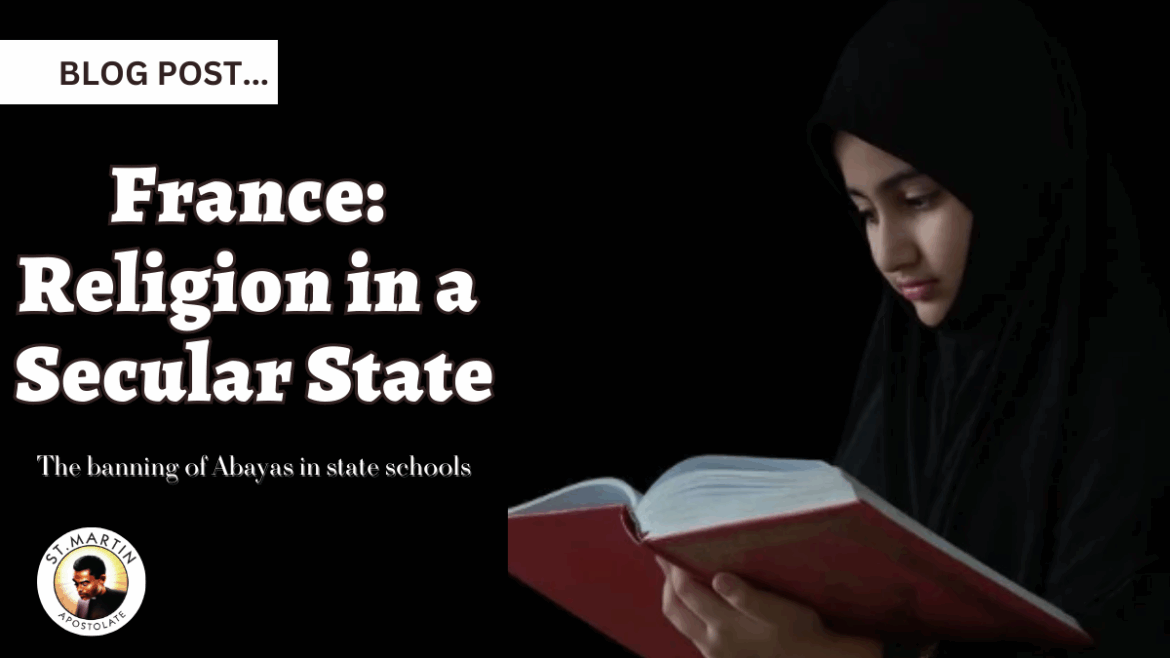France, often lauded for its rich tapestry of culture and history, presents a complex landscape when scrutinized through the lens of religion. As a secular nation, France’s approach to faith is steeped in the principles established during the Enlightenment, emphasizing rational thought and the separation of church and state. Despite its secular constitution, France is home to a diverse array of religious beliefs that reflect its multicultural populace.
At the outset, it is pivotal to acknowledge the predominant faith in France: Christianity. With approximately 63% of the population identifying as Christian, this dominion encompasses various denominations, though Roman Catholicism stands out as the most prevalent. The influence of Catholicism can be traced back to the early foundations of France as a nation, with numerous cathedrals, churches, and historical landmarks illustrating its deep-rooted significance in the national identity.
The Catholic Church, despite its waning congregational strength, continues to hold sway in societal norms and public holidays. Majestic celebrations such as Easter and Christmas resonate not only in religious settings but also pervade cultural festivities across the nation. The opulent architecture of churches like Notre-Dame de Paris and the Basilica of Sacré-Cœur serve as testimonies to the enduring legacy of Christianity in French heritage.
However, the French religious atmosphere is not homogeneous. Protestantism, though historically a minority, occupies a noteworthy position, fostering a diverse range of denominations such as Lutheran, Reformed, and Evangelical congregations. The Protestant Reformation catalyzed significant changes in the French religious landscape, leading to periods of persecution and conflict, notably during the Wars of Religion in the 16th century. Despite historical adversity, modern-day Protestantism has seen a renaissance, especially within the Evangelical community, which has been experiencing growth and vitality in recent decades. This demographic shift highlights a burgeoning re-engagement with Christian teachings, especially among the youth.
Islam, the second largest religion in France, boasts a significant presence, representing roughly 9% of the population. This figure reflects the diverse ethnic backgrounds of Muslim communities, largely comprising immigrants from North Africa, the Middle East, and sub-Saharan Africa. The complexity of Islam within a secular framework often leads to sociopolitical discourse surrounding integration, cultural identity, and religious expression. France’s contentious history regarding laïcité—the principle of secularism—has been prominently evidenced by debates concerning the wearing of hijabs and the construction of mosques. Such discussions are emblematic of the broader struggle to reconcile religious expression with a commitment to secular governance.
Moreover, Judaism forms an integral component of France’s religious mosaic, boasting one of the largest Jewish communities in Europe. Approximately 0.7% of the French population identifies as Jewish, with roots tracing back centuries. This community has significantly influenced French culture, philosophy, and the arts. Yet, like other religious groups, Jews in France grapple with contemporary challenges, including rising antisemitism and the preservation of cultural identity amid increasing secularism. The vibrant celebrations of Jewish holidays such as Passover and Hanukkah are testimonies to the resilience and enduring presence of Jewish faith within France.
Additionally, Buddhism and other Eastern philosophies have sewn themselves into France’s spiritual landscape, primarily through immigration and cultural exchange. While adherents of Buddhism constitute a small fraction of the population, estimated at around 0.5%, the practice is becoming increasingly popular, especially among the French youth. Centers dedicated to Buddhist teachings can be found across major cities, illustrating a thirst for spiritual exploration beyond traditional boundaries.
The complexity of these interwoven faiths poses intriguing questions regarding identity and the French national character. While secularism promotes a neutral space for varied beliefs, the reality of practicing faith in a secular context often elicits tensions and negotiations. Community leaders, educators, and policymakers continually engage in dialogue to foster coexistence and mutual respect within an increasingly pluralistic society.
In the context of historical events, the charters of French governance have forged a unique relationship with religion, notably following the 1905 law separating the church from the state. This legislation exemplified France’s commitment to secularism, aiming to mitigate religious influence on public affairs. Yet, this separation has implications for how religious groups operate within the public sphere. Challenges arise as religious communities seek to retain cultural practices while navigating the confines of a secular legal framework.
In conclusion, the religious profile of France is richly layered, reflecting centuries of cultural evolution and philosophical inquiry. Christianity remains the cornerstone of this mosaic, with substantial representations from Protestant, Muslim, and Jewish communities, supplemented by burgeoning Eastern spiritual practices. The essence of laïcité invites an ongoing dialogue around faith, identity, and the virtues of tolerance within one of the world’s most celebrated secular nations. Understanding this intricacy offers a glimpse into the broader implications of faith in contemporary society, inviting contemplation on the role of religion amidst the currents of globalization and modernity.



